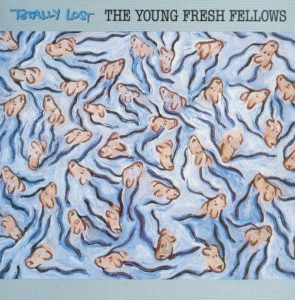Here’s to the Unsung Heroes: The Young Fresh Fellows and Carmaig de Forest Play Live

If there were any justice in the world (and specifically in this part of it), there’d be some sort of monument celebrating The (Legendary) Young Fresh Fellows.
Back when Nirvana was still just a gleam in the eye of some kid in Aberdeen named Cobain, The Fellows had already staked out a devoted cult following playing cheeky, hooky rock and roll that laced power pop with glimmers of new wave’s unfettered goofiness. Formed in 1982, The Fellows were a blast of fresh air, and they began to rise in prominence through the remainder of the decade. Bands this funny seldom balanced chuckles with strong songwriting so deftly.
The Fellows were one of the few homegrown outfits that toured extensively on a national level in the halcyon days before grunge, often sharing stages with Iconic Minneapolis band The Replacements (the latter’s sloppy, punk-tinged rock was a kindred spirit with The Fellows’ jaunty but sharply witty output).
Throughout the band’s near-40-year history, The Young Fresh Fellows have managed to remain surprisingly, well, fresh. In addition to perfecting their power pop sound over the years, they evolved into terrific songwriters, buoyed by lead singer/guitarist Scott McCaughey’s wry wit, Kurt Bloch’s crunchy guitars, and a world-class rhythm section in the form of drummer Tad Hutchison and bassist Jim Sangster. Rest assured that this band of grizzled PNW rock vets can still kick up dust on a live stage with the best of ‘em: Their two weekend sets (tomorrow night at Slim’s Last Chance in Seattle’s Georgetown district and Saturday April 27 at Dante’s in Portland should provide irrefutable proof of that assertion.
One super-sized bonus on both evenings will be the act preceding The Fellows both nights. Singer/ ukulele player/songwriter Carmaig de Forest has emerged from several years of semi-retirement to play opening sets both nights, and all hyperbole aside, you’ll kick yourself if you miss him.
De Forest is one of those ahead-of-his-time cult figures boasting a relatively small but truly amazing back catalog. His backstory’s punctuated by creative encounters and collaborations with legit rock icons, as well as the kind of record-label woes that could handily crush a lesser human. Most importantly, his unique style was—and remains—indelible.
A former UC Santa Cruz theater major, de Forest shifted gears in the early ‘80s from drama and stage direction studies to music, writing punk-folk songs of love and political protest that he delivered solo. A ukulele that had formerly decorated his dorm room wall served as primary accompaniment to his singing.
He cultivated a prominent following in California, ultimately sharing live stages with everyone from the Ramones to the Violent Femmes (Femmes lead singer Gordon Gano was such a big fan that he was part of de Forest’s backing band for a few months). De Forest even managed to enlist no less of a figure than Alex Chilton to produce the first Carmaig de Forest full-length, I Shall Be Released. But two indie labels in a row (Big Time Records and Good Foot Records, respectively) each coincidentally died ignoble deaths just when each was on the verge of connecting de Forest with a larger audience.
Happily, after a long spell of very intermittent music-making marked by welcome segues into education and stay-at-home parenthood, de Forest is celebrating the 2017 reissue of I Shall Be Released (pragmatically titled I Shall Be Re-Released) by playing live sets divided between solo singing and playing, and a full-band configuration that includes members of The Young Fresh Fellows and Mudhoney.
If you’ve never heard de Forest before, I Shall Be Re-Released is a certifiable eye-and-ear opener. The closest thing to a label that could be slapped on it would be punk-folk, but de Forest’s use of ukulele definitely roves outside the folk confines. His affecting voice bears echoes of Lou Reed, Jonathan Richman, and Billy Bragg, and the album’s tracks are divided fairly evenly between love songs and political protest numbers.
De Forest does both with equal efficacy, but I’m especially fond of his socially plugged-in material. He was taking dead aim at Ronald Reagan in most of those songs, and specific name references aside, it’s amazing (if somewhat depressing) to ponder the sustained relevance of songs like “Hey Judas” and “Crack’s No Worse Than the Fascist Threat.” Substitute Brylcreem and Jelly Bellies for an orange spray tan and ridiculous combover, and it’s obvious that Carmaig de Forest’s political tracks are still telling the hard truth after almost 40 years.